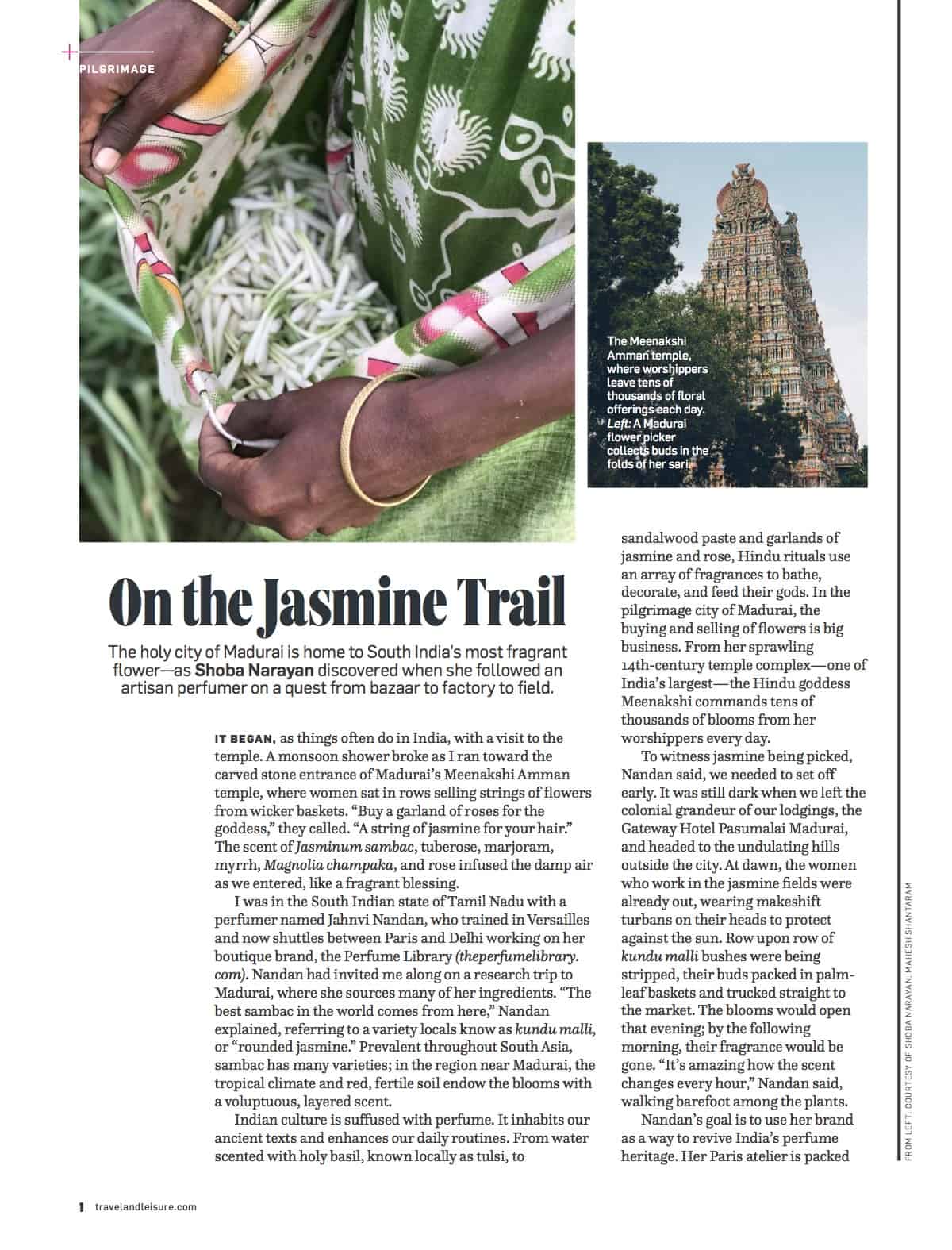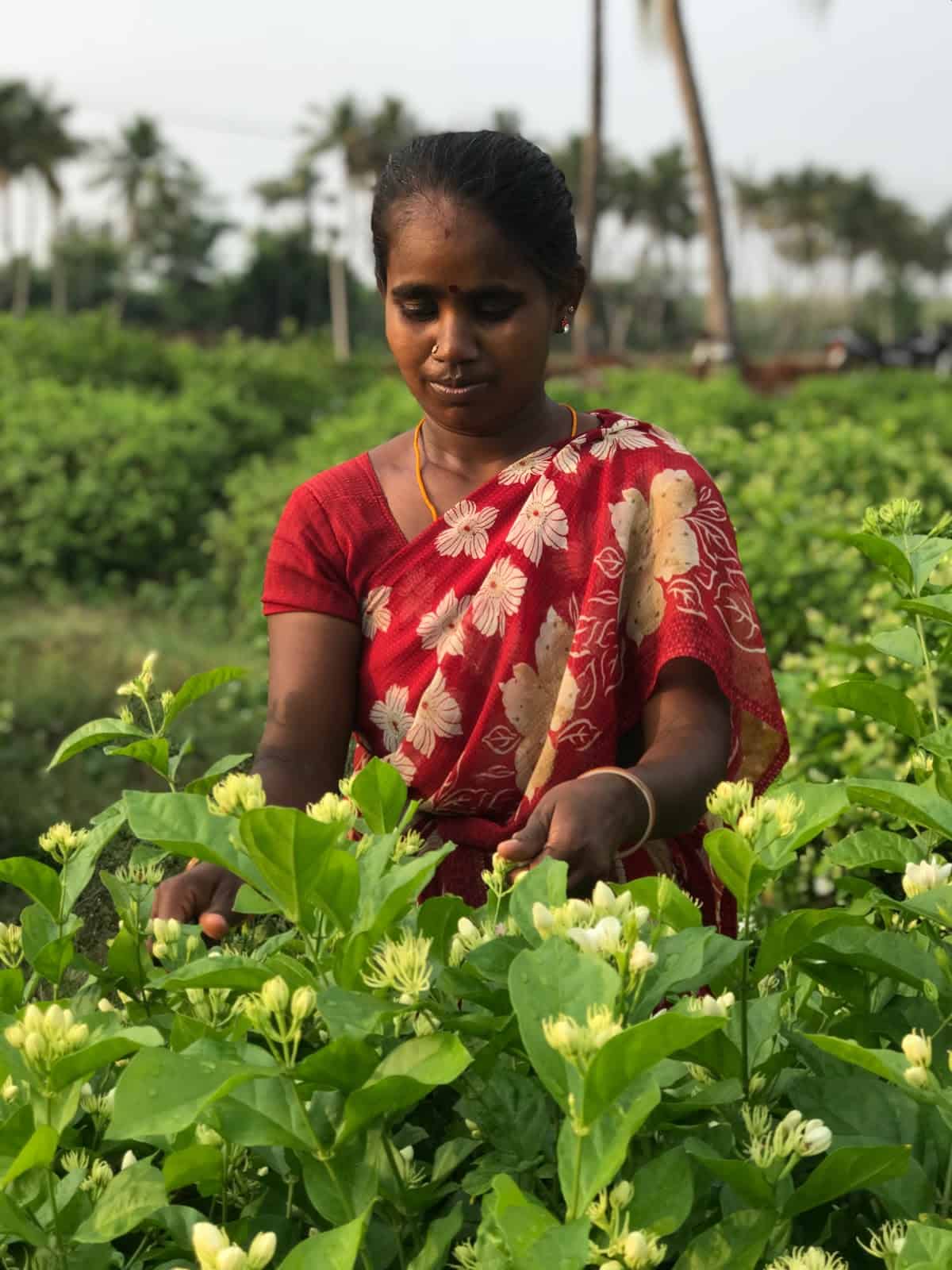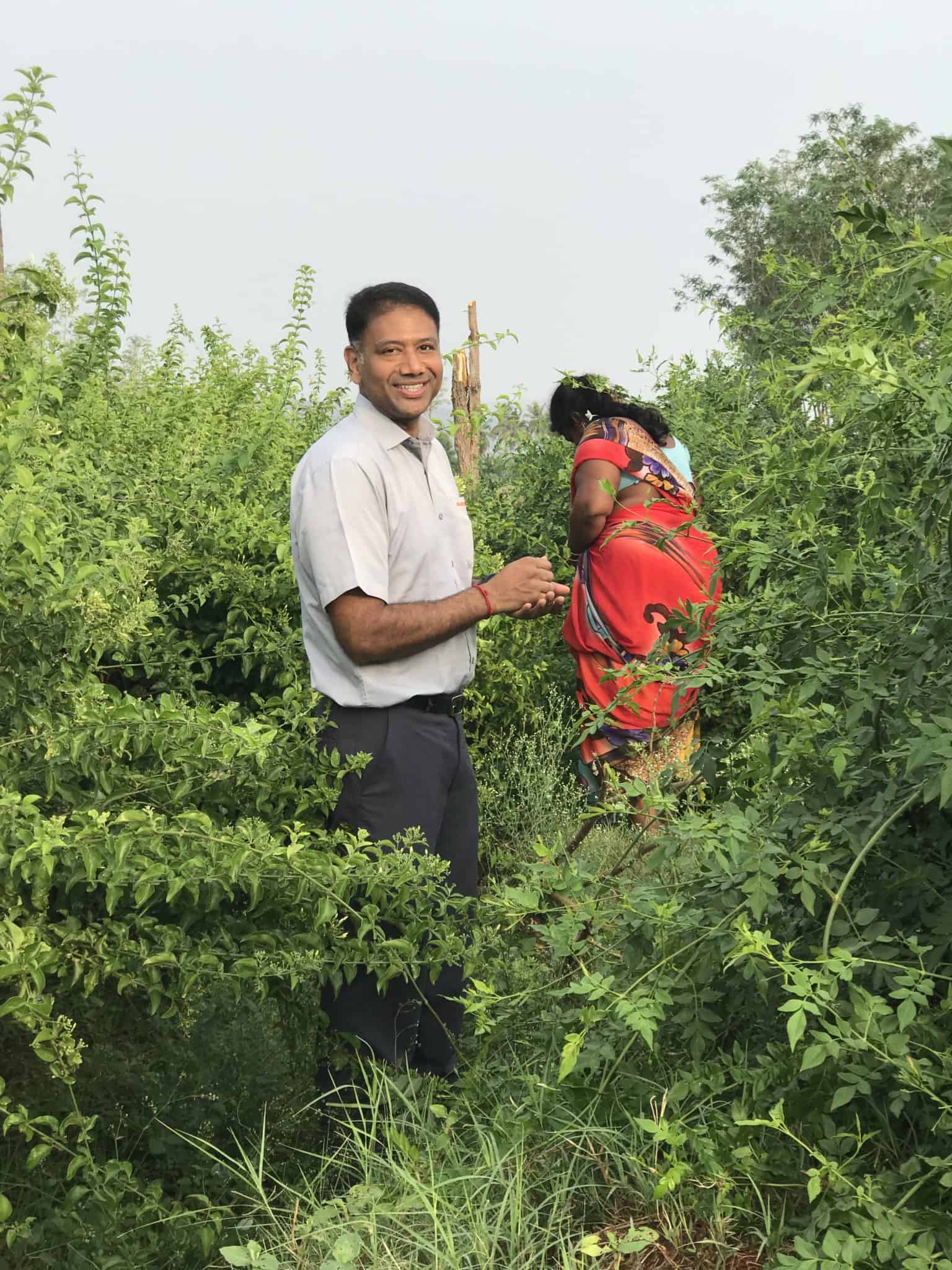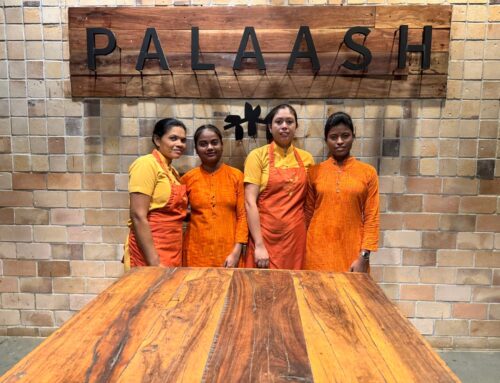Last summer, I went on a trip to Madurai with perfumer Jahnvi Nandan and perfume essence exporter, Raja Palaniswamy.
The world’s best Jasmine sambac essence comes from Madurai, said Jahnvi. I reported the story for Travel & Leisure
All text and photos are mine.
Jasmine in Madurai PDF here


It begins, as things do in India, with a visit to the temple.
A monsoon shower breaks out as we run into the Madurai Meenakshi temple. On either side sit rows of women selling strings of flowers from wicker baskets. The scent of petrichor, sambac, tuberose, champaka, and rose infuse the rain as we run in– like a perfume bottle emptying over our heads.
Like a fragrant blessing.
Meenakshi, the fish-eyed goddess rules over Madurai from her sprawling 14th century temple complex, commanding some 1800 pounds of flowers everyday for her worship. She is Raja Palaniswamy’s stiffest competitor, although he is too devout to view it that way.
Raja, as he is known, is a perfume extractor, supplying the likes of Guerlain, Dior, Chanel and others. He is in Madurai at the behest of Jahnvi Nandan, a French-trained perfumer who shuttles between Paris and Goa for her brand, Perfume Library.
“The best Jasmine sambac in the world comes from Madurai,” says Nandan.
Slim and elfine, Nandan grew up in India and Japan, studied at the prestigious ISIPCA perfume school in Versailles, speaks fluent Japanese and French, and scours the earth for rare and pure ingredients. Sambac, she buys in Madurai. From bud to bottle.
“South India has one of the oldest traditions of perfume composition in the world,” says Nandan. Madurai is the obvious and only place to begin. Its flower market receives 12 to 25 tonnes of sambac everyday depending on season (one ton is 1000 kilos or 2200 pounds). The earliest buds are vaccum-packed and sent to Delhi, Europe and the US, where homesick Indians decorate their Bollywood-style weddings with jasmine strings. Mid-morning buds go to local temples, political rallies and the retail flower vendors: women who fan out across Madurai selling jasmine to customers like me. One string costs Rs. 30 or 50 cents. Less than a spritz of perfume.
Marrakech-based perfume legend, Serge Lutens once told me that the raw materials for most perfumes came from India. “Indian and Arab cultures have a deep-rooted tradition of perfume,” he said.
Like most tropical people, Indians both revel in and take perfume for granted. They inhabit our ancient texts and infuse our daily routine.
To this day, Indians adorn themselves with fragrant champaca (try Tom Ford’s Champaca Absolute for a taste of this scent) and jasmine flowers (Joy by Jean Patou), cool their bodies with sandal paste (Creed Original Santal), sprinkle rose water to welcome guests (Le Labo’s Rose 31), light pandanus or kewda incense in prayer rooms (D.S. and Durga’s My Indian childhood), massage hibiscus-infused coconut oil into hair, dry their wet washed hair with frankincense smoke (Chembur by Byredo), and chew on cardamom or cloves before kissing lovers (Mimosa and Cardamom by Jo Malone).
The next morning, we set off from the Colonial grandeur of our hotel, Taj Pasumalai to the jasmine fields outside the city. The women are already out at dawn, with makeshift turbans on their heads to protect against the sun. Entire fields of gundu-malli or fat jasmine as it is called, are picked, packed in palm leaf baskets and trucked to the Madurai flower market.
The buds will open that evening and die the next day. Adjoining are fields of Jasminum grandiflorum– pointed, pinkish, with a perfume that I find more haunting. It is the scent of my childhood.
Nandan stands amidst the field smelling flowers. “It’s amazing how the scent changes every hour,” she enthuses. I cannot discern this. Her atelier in Paris is packed with dozens of labelled glass bottles, each holding an ingredient. “All this jasmine,” she waves around, “will go into one of these bottles.” Raja concurs. 700 kilos of sambac flowers give 1 kilo of “concrete” or extract, he says. Buyers pay $3500 for one kilo of Jasmine Absolute.
Nandan walks barefoot, nymph-like through the fields, dreamily smelling everything. “Different perfumers are gifted in different ways,” she says. “Federic Malle, for example, is about composition. I am good at playing with flowers. I have an affinity for them.”
Nandan’s bestselling perfume, Aphtoori Absolute is based on sambac. It is a layered oriental with notes of musk, yerbamate, and of course, sambac. Nandan’s goal is to use her contemporary brand as a way of reviving India’s perfume heritage.
At the Madurai flower market, it is like an auction. Men and women jostle the line of shops, calling out prices, buying and selling sackfuls of flowers, that they carry out by foot, motorbike and truck. Nandan buys strings of ylang ylang, davana, marjoram, tulsi/holy basil, jasmine, roses and lotus. All through the one hour ride to Raja’s extraction plant, she keeps smelling the flowers. “I am trying to imprint their scent components into my memory, and I am thinking about how to recreate them,” she explains.
When we arrive at the extraction plant, 1500 pounds of glorious jasmine are spread across the floor. “We have to wait for them to fully bloom before loading them into the extractors,” says Raja. “Otherwise, the scent won’t be fully developed.” An hour later, buds have bloomed. Four men ladle the flowers into a giant cylindrical container into which a hexane solvent will be added.
“A Sufi saint was asked what forgiveness is,” quotes Nandan. “He said, “It is the scent the flower gives out when it is crushed.”
The next day, we drive to Raja’s other factory near Coimbatore. Inside, again laid out on the floor, are a tonne of pink lotuses that have aleady bloomed. They are stunning to see, this national flower of India. As I smell them, Nandan calls out the notes: lily, tonka, watery, leathery, powdery. She picks out one perfect lotus and smells it all the way to the airport.
By then, we have become friends. I learn that Nandan is recently separated from her French husband, that she has moved out of her home in Delhi. She is writing books, creating a new perfume named 11 Visconti. And inhaling a lotus. I ask her why.
“Because my life is like this lotus,” she says. “You know– a lotus blooms from muddy murky waters. My life is murky right now. And I hope to bloom from it.”










Leave A Comment